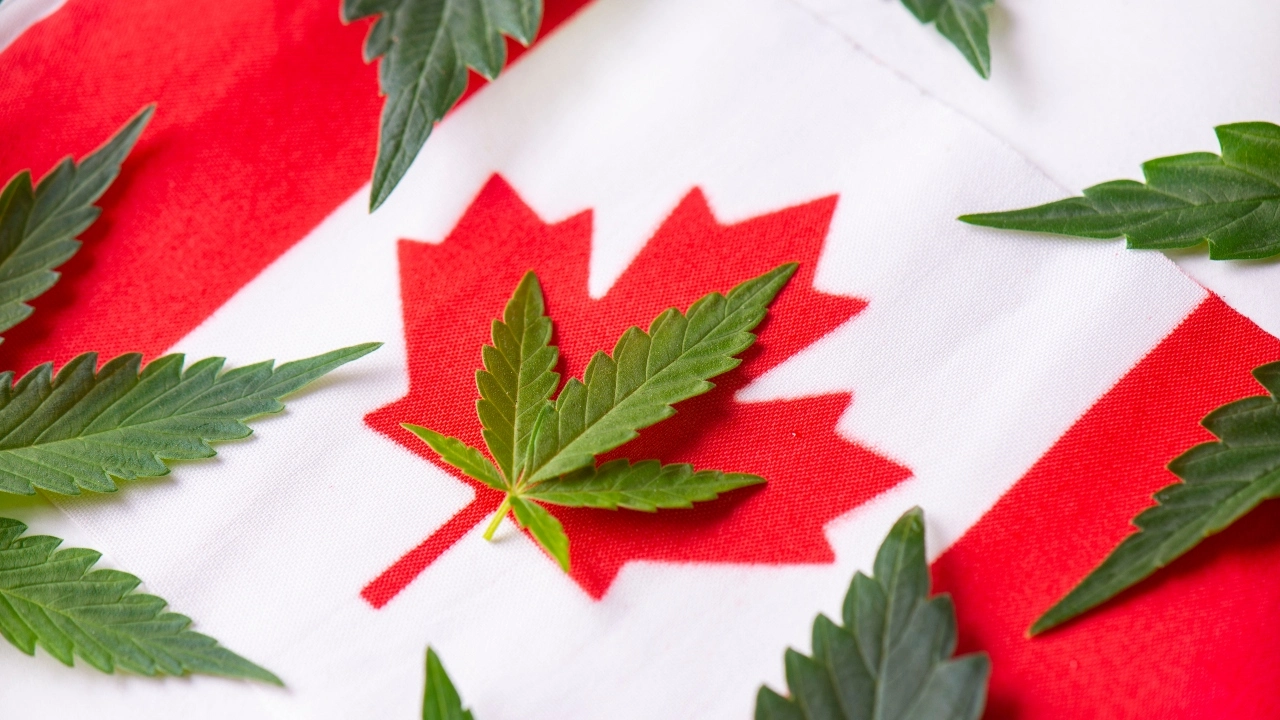Canadian recreational cannabis sales were worth 5.07 billion Canadian dollars ($3.8 billion) in 2023, an increase of 12.2% compared to 2022, according to government retail sales data released Thursday.
The year-over-year retail trend marks a slowing growth rate for Canadian cannabis sales as the market matures, more than five years after adult-use legalization in October 2018.
In 2022, annual marijuana sales increased by 17.9% compared to 2021, reaching roughly CA$4.5 billion.
“I think it’s a natural slowing,” said Brad Poulos, a professor of entrepreneurship at Toronto Metropolitan University who studies the Canadian cannabis industry.
The vast majority of growth in legal cannabis sales comes from consumers transitioning from the illicit market, Poulos said.
Going into 2024, the illicit market still controls roughly 40% of cannabis sales in Canada, he estimates.
Although illegal operators had early advantages in terms of product assortment and access to consumers, that gap has narrowed over time as Canada has permitted new product formats and access to legal stores has improved.
"I think there's still one area where the illicit market does enjoy an advantage, and that is potency of edibles," Poulos told MJBizDaily in an interview.
For public health reasons, Canada limits cannabis edibles to no more than 10 milligrams of THC per package.
Pre-rolls gain ground, price compression slows
Cannabis consumer preferences continued shifting throughout 2023, with exceptional growth in sales of pre-rolled joints in Canada, according to Mitchell Laferla, a data analyst with Seattle-based cannabis industry analytics company Headset.
"In 2023 pre-rolls captured 31.4% of total sales, an increase of 19% over the previous year," Leferla noted in an analysis emailed to MJBizDaily.
"This brings (the pre-roll category) to near parity with flower (35.2%) as the most popular product category in Canada."
Headset's "connoisseur/infused" segment of the pre-roll category - which includes joints fortified with cannabis concentrates - helped drive pre-roll growth in the Canadian markets tracked by Headset (Alberta, British Columbia, Ontario and Saskatchewan).
Meanwhile, Leferla wrote that Canadian cannabis prices continued to decline across most product categories in 2023.
However, price compression last year was less precipitous than "double-digit pricing compression the previous year," he observed.
"Noticeably pre-roll prices held steady, likely buoyed by strong demand within the category," Laferla wrote.
Monthly sales data
The Statistics Canada retail sales data released Thursday showed CA$441.2 million in legal adult-use cannabis sales in December, a year-over-year increase of 3.6% compared to December 2022.
It's also a month-over-month increase of 8.2% from November 2023.
Until picking up in December, monthly cannabis sales had been on the decline since peaking at CA$467 million in August.
Statistics Canada revised November's sales total downward to CA$407.9 million, from the previously reported monthly figure of CA$412.1 million.
Cannabis sales increased in most Canadian provinces on a month-over-month basis in December, led by a 19.3% gain in Ontario to CA$184.3 million.
Alberta, the second-largest provincial market after Ontario, posted an 11.3% month-over-month increase to CA$82 million.
However, month-over-month sales declined by 12.6% in British Columbia to CA$59 million and also shrank by 5.2% in Quebec to CA$49.4 million.
Statistics Canada said its national cannabis sales data for December was of "very good" quality, a step down from the usual "excellent" quality rating.
Industry headwinds persist
Despite the annual increase in sales, Canadian cannabis industry insiders say the regulated market still faces significant struggles.
High excise taxes are a particular industry complaint, and the entrenched illicit market remains a key challenge.
Meanwhile, the industry is holding its breath for a legislative review of legalization due for release this spring, although that review is not guaranteed to lead to reforms that would benefit marijuana producers and retailers.
Canada's cannabis retail sector is still consolidating, with some stores being acquired or closing entirely in 2023.
Government-owned cannabis businesses, including provincial wholesale and retail monopolies, have in many cases fared better than private-sector producers and retailers.
Poulos of Toronto Metropolitan University estimates that Canadian cannabis sales could grow by roughly 10% in 2024 over 2023.
"Where that growth would come from is that continued trickling away of users from the illicit market - either entirely, or at least for some of their consumption," he said.
Continued rollouts of legal cannabis stores in certain parts of Canada could also help, Poulos added.
For example, the province of Quebec still has "fairly low penetration, store-wise," he said, noting that the leading province, Ontario, still has "a handful of cannabis deserts remaining" in municipalities that don't permit cannabis stores.
Solomon Israel can be reached at solomon.israel@mjbizdaily.com.





